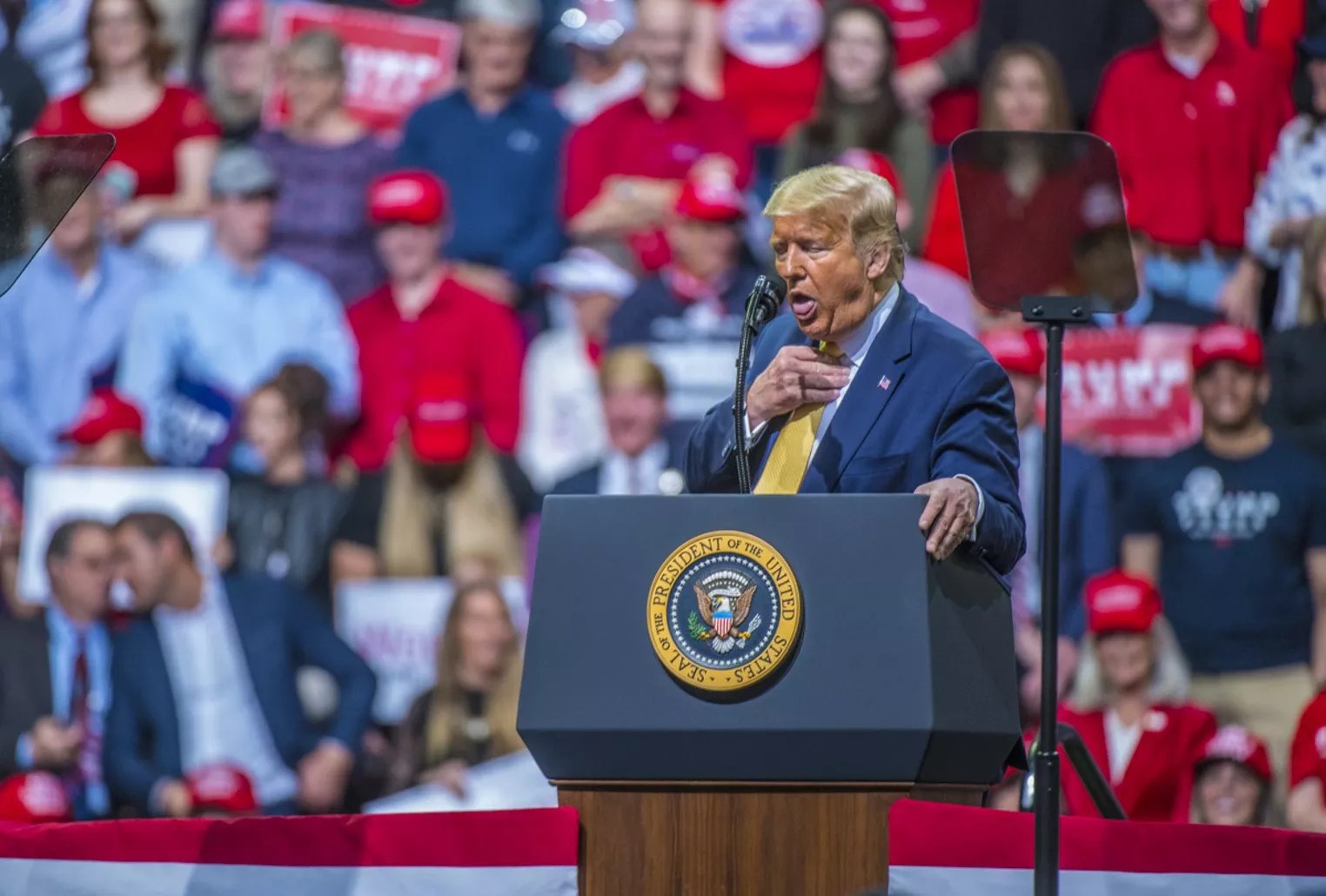
Evan Semon

Audio By Carbonatix
Donald Trump has always had a rocky relationship with Colorado. There was that spat between then-wife Ivana and then-girlfriend Marla Maples on the slopes of Aspen back in 1990. That snub when his bid to redevelop Union Station didn’t pass muster. Trump’s subsequent plans to erect Denver’s tallest building at 1770 Sherman Street fell flat, too.
Then came his pummeling at the 2016 Colorado Republican Party Convention, which Trump didn’t bother attending, when delegates gave all 34 votes to Ted Cruz, who did. “The people of Colorado had their vote taken away from them by phony politicians,” Trump tweeted. “Biggest story in politics.”
The Colorado election system was “rigged,” he said. “Crooked.”
Trump expanded on the theme in an op-ed in the Wall Street Journal on April 14, 2016. “On Saturday, April 9, Colorado had an ‘election,’ without voters,” Trump wrote. “Delegates were chosen on behalf of a presidential nominee, yet the people of Colorado were not able to cast their ballots to say which nominee they preferred. …Let us take inspiration from patriotic Colorado citizens who have banded together in protest. Let us make Colorado a rallying cry on behalf of all the forgotten people whose desperate pleas have for decades fallen on the deaf ears and closed eyes of our rulers in Washington, D.C. The political insiders have had their way for a long time. Let 2016 be remembered as the year the American people finally got theirs.”
Will 2025 be the year that Donald Trump got his?
While Trump won the national vote in 2016, he did not win in Colorado. He did not take Colorado in 2020, either, and he focused much of his ire for his overall loss that year on Denver-based Dominion Voting Systems, which he claimed had “rigged” the election.
Those claims fueled the efforts behind January 6, 2021…and Trump’s behavior that day inspired six Coloradans – including 91-year-old, lifelong Republican Norma Anderson to file suit to keep Trump off the ballot in Colorado.
Or simply read Section 3 of the 14th Amendment of the Constitution, ratified by the states three years after the end of the Civil War:
“No person shall be a Senator or Representative in Congress, or elector of President and Vice-President, or hold any office, civil or military, under the United States, or under any State, who, having previously taken an oath, as a member of Congress, or as an officer of the United States, or as a member of any State legislature, or as an executive or judicial officer of any State, to support the Constitution of the United States, shall have engaged in insurrection or rebellion against the same, or given aid or comfort to the enemies thereof….”
The Colorado Supreme Court judge agreed that not only had Trump “incited” an insurrections, but his position as an officer of the United States at the time prevented him from running for president again. “We do not reach these conclusions lightly,” the seven justices noted. “We are mindful of the magnitude and weight of the questions now before us.”
That case went all the way to the U.S. Supreme Court in February 2024, which offered a narrow ruling that allowed Trump to appear on Colorado’s primary ballot in March 2024.
This column has been updated from a version that appeared in February 2024.